-
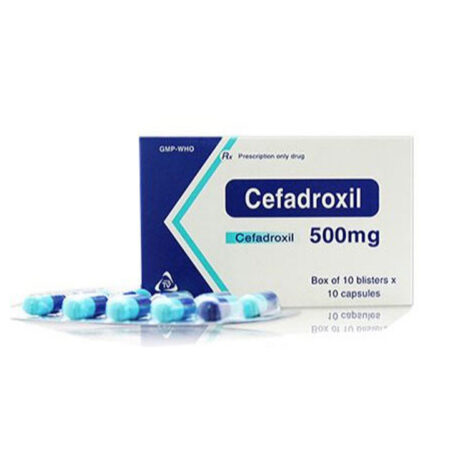
Cefadroxil
$115.20View productsCefadroxil is used to treat many different types of bacterial infections such as bronchitis, tonsillitis, ear infections, skin infections, and urinary tract infections.
-
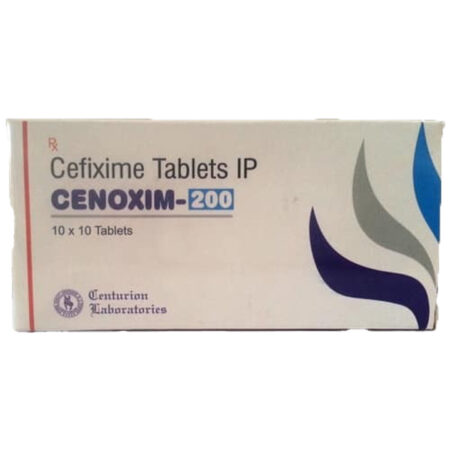
Cefixime
$214.20View productsCefixime is in a group of drugs called cephalosporin (SEF a low spor in) antibiotics.
-
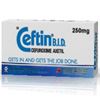
Ceftin
$265.50View productsCeftin is used for treating bacterial infections (sinus, skin, lung, urinary tract, ear, and throat). It may also be used to treat Lyme disease and gonorrhea.
-
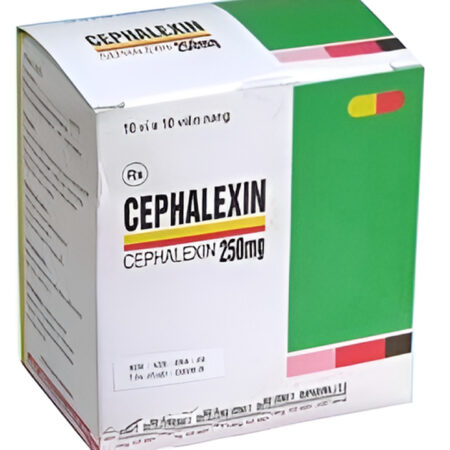
Cephalexin
$112.50View productsCephalexin is attributed as antibiotic of cephalosporins group which acts against bacteria preventing formation of their cell walls. It is enough resistant to penicillinases of gram positive microorganisms but can be destroyed by beta-lactamases of gram negative ones. It shows broad spectrum activity against gram positive microorganisms such as Staphylococcus, Staphylococcus epidermidis; Streptococcus, Corynebacterium diphtheriae, Clostridium, Actinomyces israelii, Bacillus anthracis, gram negative microorganisms like Escherichia coli, Klebsiella, Proteus mirabilis, Neisseria gonorrhoeae, Neisseria meningitidis, Shigella, Salmonella. Common infections that are treated with Cephalexin include infections of the middle ear, tonsils, throat, larynx (laryngitis), bronchi (bronchitis) and pneumonia as well as in urinary tract, skin, and bones.The dose of Cephalexin for adults is 1 to 4 grams in divided doses. The interval between doses may be 6 or 12 hours depending on the infection.Before using Cephalexin, tell your doctor if you are allergic to any drugs (especially penicillins), have kidney or liver disease, a stomach or intestinal disorder such as colitis, and diabetes.Hypersensitivity to Cephalexin, cephalosporins (Ceclor, Duricef, Omnicef, Spectracef, Suprax, Cefzil, Fortaz, Ceftin) and beta-lactamase antibiotics. Cautiousness should be exercised in patients with kidney disorder, pseudomembranous colitis, pregnancy, breastfeeding and babies younger than 6 month.Most common side effects may include signs of allergy (hives, rash, swelling of face and tongue), seizure, fever, sore throat, and headache with a severe blistering, peeling, and red skin rash, pale or yellowed skin, dark colored urine, fever, hallucinations, confusion or weakness, easy bruising or bleeding, unusual weakness, confusion, agitation, decreased or absent urination. In case of serious and persistent side effects listed above seek immediate medical help.Inform your doctor about all medications you take and especially about live vaccines, probenecid. Cephalexin may decrease the effectiveness of combination-type contraceptive pills. This medication is able to show false positive results with certain diabetic urine testing products. Cephalexin increases effects of indirect anticoagulants, polphenilbutazone, furocemide. Salicylates and indomethacin slow excretion of cephalolexin by kidneys. Medications decreasing secretion in renal tubules increase concentration of the medication blood serum and slow down its excretion.If you missed a dose take it as soon as you remember. If it is almost time of your next dose just skip it and return to your regular schedule. Never double the dose of this medication.In case of serious and persistent symptoms of nausea, vomiting, stomach pain, diarrhea, and blood in your urine consult your doctor about medical attention.Store at room temperature between 59-77 degrees F (15-25 degrees C) away from light and moisture, kids and pets. Do not use after expiration term.We provide only general information about medications which does not cover all directions, possible drug integrations, or precautions. Information on the site cannot be used for self-treatment and self-diagnosis. Any specific instructions for a particular patient should be agreed with your health care adviser or doctor in charge of the case. We disclaim reliability of this information and mistakes it could contain. We are not responsible for any direct, indirect, special or other indirect damage as a result of any use of the information on this site and also for consequences of self-treatment.
-
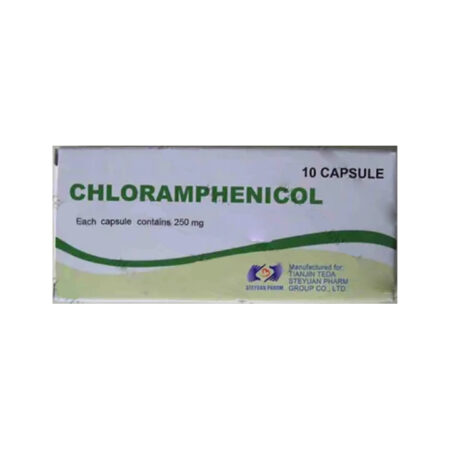
Chloramphenicol
$61.20View productsChloramphenicol is used for treating serious infections caused by certain bacteria.
-
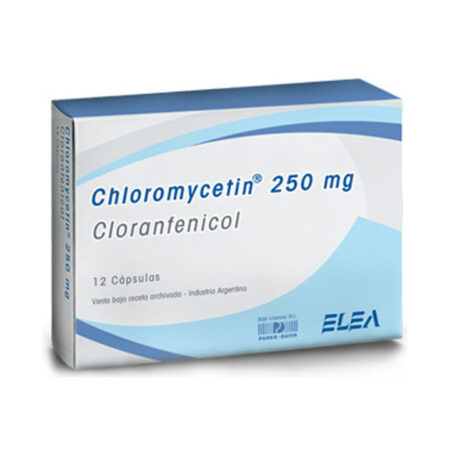
Chloromycetin
$44.10View productsChloramphenicol is used to treat serious infections in different parts of the body.
-
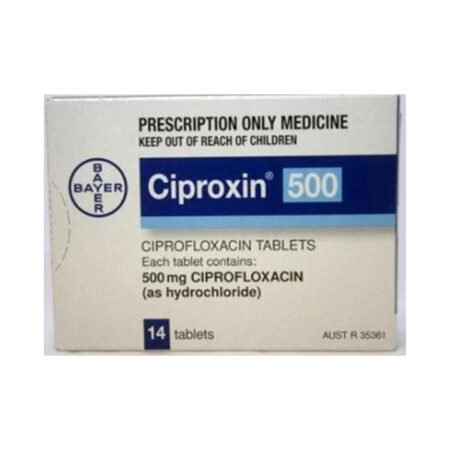
Cipro
$89.10View productsCipro is an antibiotic in a group of drugs called fluoroquinolones. It is used to treat different types of bacterial infections, e.g. bladder inflammation.
-
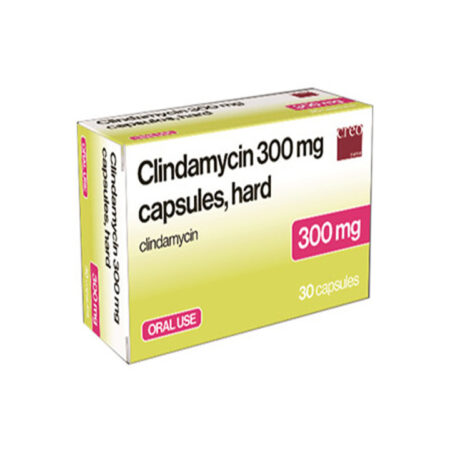
Clindamycin
$127.80View productsClindamycin is an antibiotic that fights bacteria in the body.Clindamycin is used to treat serious infections caused by bacteria.
-
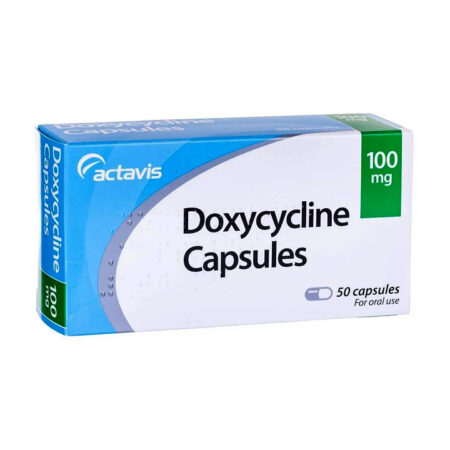
Doxycycline
$141.30View productsDoxycyline is a synthetic broad-spectrum antibiotic derived from tetracycline and used to treat many different bacterial infections, such as infections of urinary tract, acne, gonorrhea, chlamydiosis, periodontitis (gum disease), blemishes, bumps, and acne-like lesions caused by rosacea.This medication should be taken after a meal with a big glass of water to decrease irritation of esophagus. Daily dose should be taken as a single dose or divided in two (12 hours between each one). Do not take it in larger amounts or continue to take it after the administered period. Certain brands of this medication cannot be used with dairy products. Do not crush, break, or open a delayed-release capsule, eat the pill whole. If it is an oral suspension shake it before use and measure with special measuring spoon. Never take this drug if it is expired as it may damage your kidney.Usage of Doxycycline during growth of teeth may result in their permanent color change. Avoid exposure of your body to prolonged UV radiation during treatment and 4-5 days after it. If long treatment with this medication is prescribed a regular monitoring of peripheral blood cell content, liver function tests and determination of nitrogen and urea in serum are required.Hypersensitivity to Doxycycline and tetracyclines, pregnancy (second half of the term), breastfeeding, infancy (for children younger than 9 y.o.), leucopenia, porphyria, severe liver failure.Side effects caused by Doxycycline may appear as headache, dizziness, blurred vision, fever, chills, body aches, red skin rash, pale or yellowed skin, dark colored urine, severe pain in upper stomach, loss of appetite, jaundice, easy bruising or bleeding. Contact your doctor if you experience severe effects listed above.Co-administration with aluminum, magnesium, or calcium based antacids is not recommended as Doxycyline absorption maybe slowered. Minerals (such as calcium or iron) or with bismuth subsalicylate have the same effect. Doxycycline is reported to enhance the activity of warfarin. Phenytoin (Dilantin), carbamazepine (Tegretol), and barbiturates (such as phenobarbital) may enhance the metabolism of Doxycycline.Never take a double dose of this medication. If it is almost time of the next dose just skip the missed portion and continue to take the medicine according to the schedule.In case of serious and persistent nausea, vomiting, and diarrhea consult your doctor.Store at room temperature between 59-77 degrees F (15-25 degrees C) away from light and moisture, kids and pets. Do not use after expiration term.We provide only general information about medications which does not cover all directions, possible drug integrations, or precautions. Information on the site cannot be used for self-treatment and self-diagnosis. Any specific instructions for a particular patient should be agreed with your health care adviser or doctor in charge of the case. We disclaim reliability of this information and mistakes it could contain. We are not responsible for any direct, indirect, special or other indirect damage as a result of any use of the information on this site and also for consequences of self-treatment.
-
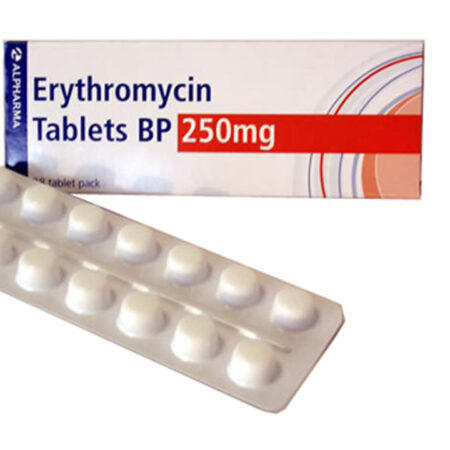
Erythromycin
$135.90View productsErythromycin is in a group of drugs called macrolide antibiotics. Erythromycin is used to treat many different types of infections caused by bacteria. It is also used to prevent bacterial endocarditis and attacks of rheumatic fever.Take erythromycin exactly as it was prescribed for you. Take each dose with a full glass (8 ounces) of water. Erythromycin can be taken on an empty stomach or with food or milk. Do not crush, chew, break, or open an enteric-coated or delayed-release pill. Swallow the pill whole.Antibiotic medicines can cause diarrhea, which may be a sign of a new infection. If you have diarrhea that is watery or has blood in it, call your doctor. Do not use any medicine to stop the diarrhea unless your doctor has told you to.Do not use this medication if you are allergic to erythromycin, or if you are also taking cisapride (Propulsid) or pimozide (Orap). If you have liver disease or myasthenia gravis, you may need a dose adjustment or special tests to safely take erythromycin. This medication is not expected to be harmful to an unborn baby. Tell your doctor if you are pregnant or plan to become pregnant during treatment. Erythromycin can pass into breast milk and may harm a nursing baby. Do not use this medication without telling your doctor if you are breast-feeding a baby.Get emergency medical help if you have any of these signs of an allergic reaction to erythromycin: hives; difficulty breathing; swelling of your face, lips, tongue, or throat. Call your doctor at once if you have any of these serious side effects:chest pain, uneven heartbeats, feeling light-headed or fainting;nausea, stomach pain, low fever, lost appetite, dark urine, clay-colored stools, jaundice (yellowing of the skin or eyes); ordiarrhea that is watery or bloody.Less serious erythromycin side effects may include:mild nausea, vomiting, diarrhea, or stomach pain;dizziness, headache, feeling tired;vaginal itching or discharge; ormild itching or skin rash.Many drugs can interact with erythromycin. Tell your doctor about all the prescription and over-the-counter medications you use. This includes vitamins, minerals, herbal products, and drugs prescribed by other doctors. Do not start using a new medication without telling your doctor.Take the missed dose as soon as you remember. If it is almost time for your next dose, skip the missed dose and take the medicine at the next regularly scheduled time. Do not take extra medicine to make up the missed dose.Seek emergency medical attention if you think you have used too much of this medicine. Overdose symptoms may include nausea, vomiting, diarrhea, stomach pain, or hearing loss.Store this medication at room temperature away from moisture and heat.We provide only general information about medications which does not cover all directions, possible drug integrations, or precautions. Information on the site cannot be used for self-treatment and self-diagnosis. The specific instructions for a particular patient should be agreed with your health care adviser or doctor in charge of the case. We disclaim reliability of this information and mistakes it could contain. We are not responsible for any direct, indirect, special or other indirect damage as a result of any use of the information on this site and also for consequences of self-treatment.
-
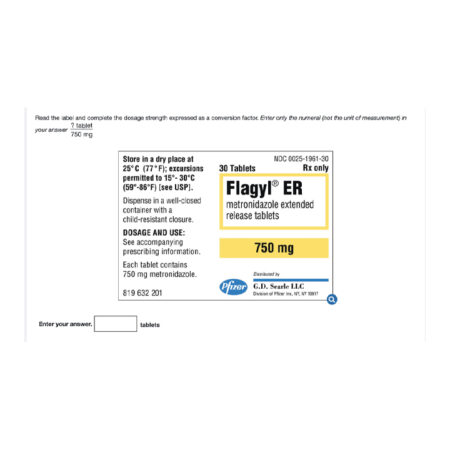
Flagyl ER
$107.10View productsFlagyl is an antibiotic. It is used to treat bacterial infections of the vagina, stomach, skin, joints and respiratory tract. This medication will not treat a vaginal yeast infection.
-
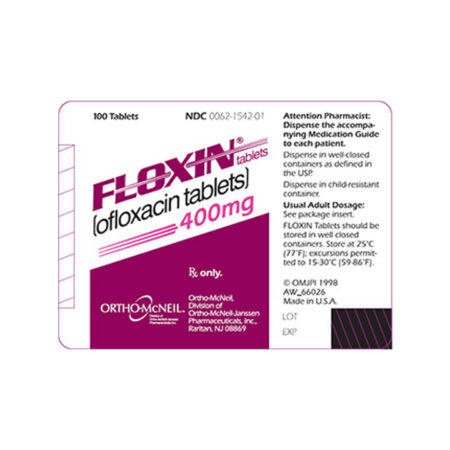
Floxin
$61.20View productsFloxin belongs to the group of anti-microbial medications called the fluoroquinolones which are synthetic broad-spectrum antibiotics. Due to their principally different mechanism of action they are active against great range of resistant microorganisms including polyresistant ones. They prevent unwinding and duplicating of bacterial DNA. Floxin is used to treat patients with infections of respiratory system (ears, throat, nose), skin, soft tissues, osteomyelitis, infectious diseases of abdomen, kidney, urinary tract, prostatitis, in gynecology, gonorrhea.Do not take Floxin with food. Dosage should be corrected for patients with severely abnormal liver or kidney function. Avoid taking of Floxin with antacids, minerals, and vitamins with iron which block the absorption of Floxin.Avoid exposure of your body to sunlight during treatment with this drug.Hypersensitivity to quinolones, epilepsy, pregnancy, breastfeeding women, children and teenagers younger than 15 y.o.The most frequent side effects include nausea, vomiting, diarrhea, insomnia, headache, dizziness, itching, and vaginitis in women. Rare allergic reactions may also occur (hives and anaphylaxis). Symptoms of nervous system stimulation, such as anxiety, euphoria, and hallucinations are rather rare.Floxin is able to interact with caffeine, cyclosporine, theophylline (asthma), warfarin (anticoagulant), medications used to treat diabetes.If you missed a dose take it as soon as you remember. If it is almost time of your next dose just skip it and return to your regular schedule. Never double the dose of this medication.In case of serious and persistent drowsiness, nausea, hot or cold feeling, confusion, and slurred speech consult your doctor about medical attention.Store at room temperature between 59-77 degrees F (15-25 degrees C) away from light and moisture, kids and pets. Do not use after expiration term.We provide only general information about medications which does not cover all directions, possible drug integrations, or precautions. Information on the site cannot be used for self-treatment and self-diagnosis. Any specific instructions for a particular patient should be agreed with your health care adviser or doctor in charge of the case. We disclaim reliability of this information and mistakes it could contain. We are not responsible for any direct, indirect, special or other indirect damage as a result of any use of the information on this site and also for consequences of self-treatment.
